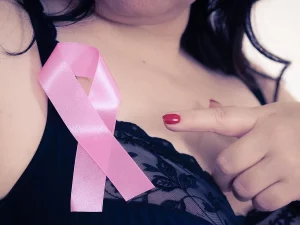 Imagine you’re at the local grocery store with the love of your life, shopping for a dinner party the both of you are throwing later that night. As you’re frantically scrabbling to figure out the menu, you feel a pair of hands massaging your shoulders, or a hand slip gently into yours, and the anxiety begins to slip away. You start turning to show your gratitude but, before you can, you spot the owner of the store walking over, the words “get out” forming on his lips. Why? you ask. What have we done wrong? He looks at you with poorly-masked contempt before he replies, I don’t do business with homosexuals. It’s against my religion. And though your spirit feels like it’s dying, you put down your basket and leave the store. You have to. It’s the owner’s protected-by-law right, after all.
Imagine you’re at the local grocery store with the love of your life, shopping for a dinner party the both of you are throwing later that night. As you’re frantically scrabbling to figure out the menu, you feel a pair of hands massaging your shoulders, or a hand slip gently into yours, and the anxiety begins to slip away. You start turning to show your gratitude but, before you can, you spot the owner of the store walking over, the words “get out” forming on his lips. Why? you ask. What have we done wrong? He looks at you with poorly-masked contempt before he replies, I don’t do business with homosexuals. It’s against my religion. And though your spirit feels like it’s dying, you put down your basket and leave the store. You have to. It’s the owner’s protected-by-law right, after all.
Oops. Did we forget to ask you to imagine you’re gay and living in Arizona? If Arizona’s legislature got its way, the nightmare described above could have become a reality. In February, lawmakers in the House of Representatives passed draconian bill S.B 1062, which would have allowed business owners to deny service to homosexual customers if doing so would place a “substantial burden on their sincerely held religious beliefs.” Luckily, due to justifiable outrage from within Arizona and the rest of the country, Governor Jan Brewer killed the bill when it reached her desk. Good call, Jan.
Now imagine that, instead of being asked to leave a grocery store because you’re homosexual, you are detained and arrested. If you’re lucky, you’ll get released and fined a hefty amount. If you’re not lucky, you might be imprisoned and tortured for months, sentenced to public corporal punishment and, in some extreme cases, you might even be executed if you’re a male. Since the 1979 Islamic Revolution, this is the reality that many gays and lesbians in Iran face on a daily basis. If it’s not the government they have to watch out for, it’s society at large; gays and lesbians who come out of the closet are oftentimes disowned by their family members and shunned by their community, isolated and made into outcasts in a country whose official policy is that homosexuals don’t exist. And although the plight of Iranian gays and lesbians deserves international attention, it seems that lately, whenever anyone mentions Iran, the phrase “nuclear threat” is sure to follow, overshadowing anything else to do with the country. Until recently, that is.
In February, while Arizona was targeting gays and lesbians, Iran’s “queen of pop,” singer Googoosh, was targeting them for a completely different reason. She recently released a song called “Behesht” (which means “Eden” or “heaven” in Farsi), in which she sings about a love that seems hopeless and forbidden. The music video for the song depicts a couple facing discrimination from society and from their families. It’s not until the last scene of the video that the couple is revealed to be two lesbians, right before cutting to a scene depicting their hands intertwined with a message that read “Freedom to Love For All”.
This is groundbreaking, mostly because it’s the first time that a high-profile Iranian celebrity of Googoosh’s status and caliber has come out in unequivocal support for gays and lesbians. Imprisoned and tortured herself for six months for refusing to leave Iran after revolutionary leaders imposed a ban on female performers, Googoosh has never been a fan of Iran’s religious regime. Now, she has used her considerable clout as an international celebrity to bring global attention to the government-sanctioned discrimination faced by gays and lesbians in Iran. Her effort, which has been viewed more than 1.2 million times since its mid-February release, has been met with fervent praise and backlash by conservatives in equal measure, both in Iran itself and abroad.
What is perhaps equally amazing about the music video for “Behesht” is that director Navid Akhavan manages to bring the essential humanity of the individuals portrayed to the forefront. Yes, there are the heartbreaking scenes depicting the couple facing the kinds of discrimination that most straight people will never face (in one scene, the two women are attacked by male strangers on the subway after being seen holding hands). But there are also scenes depicting them doing things that many couples, gay or straight, might do: shopping for clothes, relaxing at home, enjoying a day at the local park, sightseeing, going to a concert (in this case, a Googoosh concert – we see what you did there, girl!).The fact that most of the video is shot from the point-of-view of the camera allows viewers to feel as if they are part of the unfolding action, transforming the viewing experience into a poignantly personal one that could have easily been lost in the political message the video was trying to get across.
The kind of empathy this experience allows has the power to transform the issue of discrimination against gays and lesbians from a solely Iranian or a solely American issue into a global one and, more importantly, into a human issue. When the viewer feels as if it his or her hands holding those of the actress in the video, or it is his or her hands wiping away her tears and checking her for bruises after being attacked by the group of male harassers, sexual orientation begins to matter less; this is a human being, with the same desires, fears, vulnerabilities and hopes as any other human being on the planet. “Behesht” reminds us that the divides we construct around ourselves don’t matter as much as we once thought they did; at the end of the day, gay or straight, Iranian or American, what people want is the freedom to love and be loved by whomever they choose, without governmental, religious or societal freedom.
















